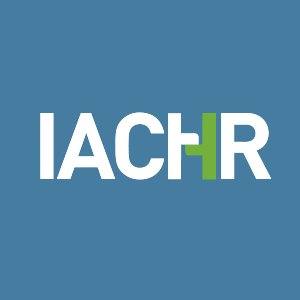
The IACHR profoundly regrets the decision to prevent its delegation from entering Venezuela today
(Washington, D.C./Panamá, 04/02/20) The IACHR delegation had planned to observe the human rights situation in the country on the ground. It also announced that it would meet with victims of human rights violations and their relatives; and with civil society organizations on the border between Colombia and Venezuela.
In July 2019, the IACHR announced an on-site visit to Venezuela, intended to take place from February 4th to the 8th, to meet with groups of victims of human rights violations, beneficiaries of precautionary measures, representatives of civil society, social movements, students, academics, and other relevant actors. The visit was organized in acceptance of the invitation made by the Permanent Representative to the Organization of American States (OAS) appointed by the Venezuelan National Assembly, recognized by the General Assembly of the OAS, in view of the persistent and wide-ranging call that Venezuelan civil society has made to the IACHR over the years, with victims at the center of its concerns.
The Commission informs the international community that, despite the above invitation, the delegation composed of the President of the IACHR and Rapporteur for Venezuela, Commissioner Esmeralda Arosemena de Troitiño; the Executive Secretary of the IACHR, Paulo Abrão; the Special Rapporteur for Freedom of Expression, Edison Lanza; and specialists from the Executive Secretariat, was banned from boarding the flight from Panama City to Caracas, according to notification received by the airline.
The Commission strongly rejects such treatment and highlights that it is typical of authoritarian regimes not to allow international scrutiny and observance of a human rights situation, which is especially detrimental to the victims of human rights violations and hinders the valuable work carried out by civil society organizations.
Accordingly, the IACHR calls on Venezuela to resume a firm commitment to human rights and adopt concrete measures to overcome the severe institutional, economic, and humanitarian crisis in which the country is immersed.
Despite what happened today, the Commission has decided to follow up on its objective of meeting with the victims, to which end it will immediately travel to the border between Colombia and Venezuela. The IACHR extends special thanks to the Government of Colombia, which offered the necessary conditions to allow the delegation to visit the city of Cucuta, Norte de Santander, which will allow the IACHR to meet, document, and gather testimonies from victims and family members regarding the serious human rights violations in Venezuela.
Finally, the IACHR offers civil society its support to overcome that country’s institutional crisis through its Special Follow-up Mechanism for Venezuela (MESEVE) and reaffirms that it will maintain an unwavering commitment to the victims of human rights violations there.